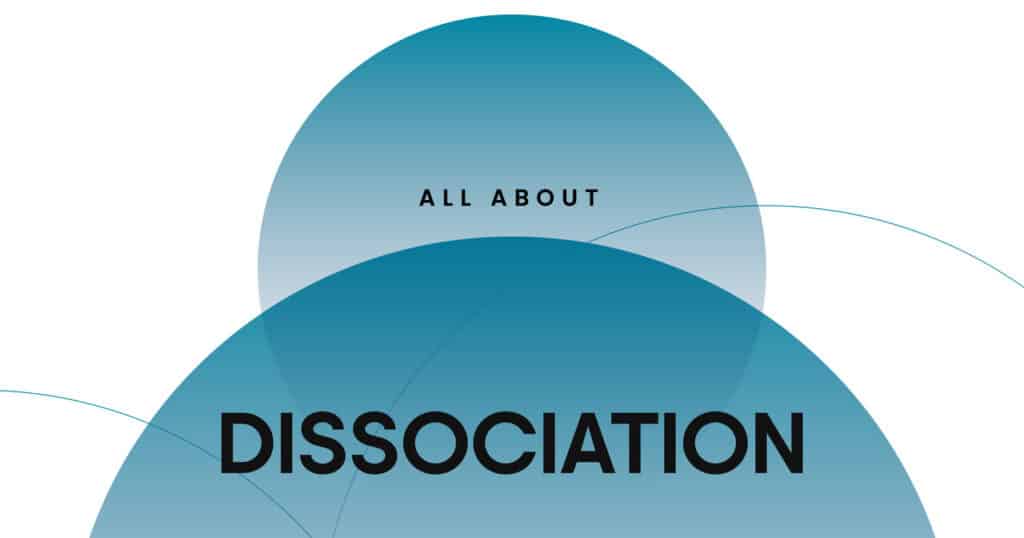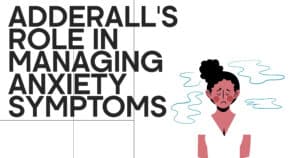Dissociation is a complex mental health phenomenon where an individual feels disconnected from their thoughts, feelings, memories, or sense of identity. This blog post explores dissociation in depth, including its symptoms, causes, and treatment options, aiming to provide a comprehensive guide to this condition.
What is Dissociation?
Dissociation is a mental process that causes a lack of connection in a person’s thoughts, memory, and sense of identity. This disconnection can disrupt every area of cognitive functioning. It can range from mild, everyday experiences like daydreaming to more severe forms that interfere with a person’s daily life.
Common Symptoms of Dissociation
Dissociation can manifest in various ways, including:
- Memory Loss (Amnesia): Inability to recall specific periods, events, people, and personal information.
- Depersonalization: Feeling detached from oneself as if observing oneself from outside the body.
- Derealization: Perceiving the world or surroundings as unreal.
- Identity Confusion or Alteration: Feeling uncertain about who one is.
- Emotional Numbing: Experiencing feelings and emotions as blunted or detached.
These symptoms can disrupt daily functioning and may vary in intensity.
Types of Dissociative Disorders
There are several types of dissociative disorders, each with unique features:
- Dissociative Identity Disorder (DID)
- Formerly known as multiple personality disorder, DID is characterized by the presence of two or more distinct identities or personality states. Each identity may have its own name, age, history, and characteristics.
- Dissociative Amnesia
- Involves an inability to recall important personal information, usually of a traumatic or stressful nature. It can be localized (specific events), selective (specific details), or generalized (complete loss of memory about oneself).
- Depersonalization/Derealization Disorder
- Involves persistent or recurrent feelings of detachment from one’s body or mental processes (depersonalization) or experiencing the world as unreal (derealization).
Causes of Dissociation
Dissociation often arises as a response to trauma, aiming to protect the individual from overwhelming experiences. Common causes include:
- Childhood Abuse: Physical, emotional, or sexual abuse.
- Natural Disasters: Experiencing or witnessing severe natural events.
- Combat: Exposure to warfare or intense violence.
- Kidnapping or Torture: Extreme and prolonged stress situations.
- Severe Stress or Life-Threatening Situations: Extreme stressors that overwhelm coping mechanisms.
Additional Risk Factors:
- Genetic Predisposition: Family history of dissociative disorders or other mental health conditions.
- Substance Use: Including drugs like alcohol and marijuana.
- Severe Sleep Deprivation: Chronic lack of sleep impacting mental health.
- Mental Health Disorders: Such as PTSD, depression, and anxiety.
Diagnosis of Dissociative Disorders
Diagnosis involves a comprehensive evaluation by a mental health professional, which may include:
- Detailed Interviews and Psychological Assessments
- The Dissociative Experiences Scale (DES)
- The Clinician-Administered PTSD Scale (CAPS)
- Physical Exam and Lab Tests: To rule out other medical conditions.
Treatment for Dissociation
Treatment for dissociative disorders typically involves psychotherapy and, in some cases, medication.
Psychotherapy
Several forms of therapy have proven effective:
- Cognitive Behavioral Therapy (CBT): Helps patients identify and change negative thought patterns and behaviors.
- Dialectical Behavior Therapy (DBT): Focuses on emotional regulation and developing healthy coping mechanisms.
- Eye Movement Desensitization and Reprocessing (EMDR): Uses guided eye movements to process and integrate traumatic memories.
- Hypnotherapy: May help in accessing and processing traumatic memories.
Medications
While there are no medications specifically approved for dissociative disorders, certain drugs can help manage symptoms of related conditions like depression and anxiety. These include:
- Antidepressants
- Anti-anxiety Medications
- Sleep Aids
Living with Dissociation
Managing dissociation involves various strategies, including:
- Journaling or Talking About Experiences: To increase emotional awareness.
- Mindfulness Techniques: Such as meditation and deep breathing exercises.
- Regular Exercise and Engaging in Hobbies: To reduce stress.
- Avoiding Substance Use and Ensuring Adequate Sleep
- Social Support: From friends, family, or support groups.
Complications of Dissociation
If left untreated, dissociative disorders can lead to severe complications such as:
- Chronic Mental Health Issues: Including depression, anxiety, and PTSD.
- Substance Abuse
- Suicidal Thoughts and Behaviors
- Relationship and Occupational Difficulties
Conclusion
Dissociation is a coping mechanism for extreme stress and trauma but can become debilitating if it persists. Understanding the symptoms, causes, and treatment options is crucial for managing this condition. If you or someone you know is experiencing dissociation, seeking professional help is essential to improving quality of life and reducing the impact of symptoms.




